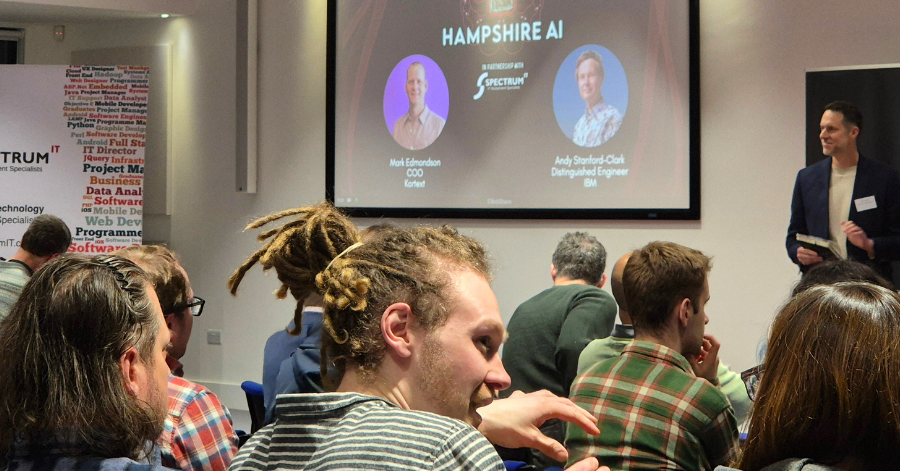
Conducting a Successful Job Search After Brexit
18 Aug, 20178 Minutes
Our resident Director Steven Wright was recently interviewed by Dice job board for his thoughts on 'Conducting a Successful Job Search After Brexit'. Find out how the upcoming split may affect your job hunt.
Whether you are just starting your tech career or considering a mid-career move, you are probably wondering how Brexit will impact your job search and whether you need to adopt a new strategy.
Frankly, the news has been littered with concerning reports that may have you worried. But is it true that foreign tech workers are declining offers to work in the UK, and that tech pros anticipate it will be harder to find a new job in the next 12 months?
Now that the dust has settled and Britain is planning its 2019 exit, we asked two technology-recruiting leaders to share what they’re seeing in the market. Here are their insights and some tips for conducting a successful job hunt in the current environment.
There’s Still Time to Retune Your Career
Brexit hasn’t affected the demand for technology professionals, according to Toby Babb, CEO of tech recruiting firm Harrington Starr Limited. In fact, it’s pretty much business as usual.
“The technology sector has been able to maintain its positive growth cycle,” Babb said. “And despite what you may have heard or read, the demand for talent is being fueled by a shortage of qualified candidates.”
Babb’s experience is validated by a recent survey of HR professionals who anticipate increased difficulty in recruiting senior and skilled/technical employees over the next three years due to the Brexit vote.
However, we can never know when the current economic cycle will come to an end. So now is an opportune time to reassess the direction of your career, upgrade your skills and dive into an emerging technology that may power the future, such as blockchain, artificial intelligence (A.I.), data science, cryptocurrency or cybersecurity.
Taking a closer look at your potential for career growth and job security is vital, especially if you’ve been working in an industry that could be negatively impacted by Brexit. Getting out ahead of critical business opportunities and threats is important, since no one knows exactly what will happen after the “split” takes place.
“Employers are currently willing to consider professionals who don’t have extensive experience in these emerging fields, but the window of opportunity won’t stay open forever,” Babb warned. “Candidates may have the upper hand for the next 18 months to two years, but you can’t be too blasé about it.”
Employers are Being Very Selective
UK employers have become more cautious about hiring new IT or engineering staff.
“Employers are trying to limit mistakes due to the high cost of making a bad hire,” Babb said. “As a result, we’ve seen time-to-hire increase by 10 to 15 percent.”
Skill gaps are a major concern, so how you present yourself to a potential employer is more important than ever. Today’s job hunt is more like a marathon than a sprint; to land an offer, tech pros need to prepare diligently for interviews and offer plenty of examples to back up claims about technical experience and skills. This will help allay the fears of employers.
Negotiate Higher Pay and Training Allowance
If you happen to have in-demand skills, now is the time to cash in. Recruiting leaders say that some tech pros have seen their personal value rise by as much as 20 percent in the current environment.
Survey data also indicates that employers are seeking new ways to overcome skill gaps and increase labour supply, with 24 percent indicating that they plan to boost training budgets. If you’re negotiating an offer with a new employer, ask for a training allowance or tuition assistance plan as well as a higher salary.
Be Prepared to Compete in a Global Talent Market
Despite what you may have read, employers are still looking to hire the most qualified candidates, whether they come from the UK, Spain, Portugal or India, explained Steve Wright, director of Spectrum IT. And the UK government has promised that the immigration of skilled international talent will continue post-Brexit.
“We’ve seen no change in their preferences or hiring practices,” Wright said.
In fact, 40 percent of employers say they are recruiting talent from a much wider geography compared to a year ago. And employers are still committed to diversifying their technical workforces. In the long run, that means you will be competing for opportunities against a bigger and more diverse talent pool.
“If your skills are rusty, or you lack some abilities that are needed to take on a new role, you may need to invest in training or take on some side projects to compete against coders and developers from around the world,” Babb added.
Source: https://uk.dice.com/technews/conducting-successful-job-search-brexit/




